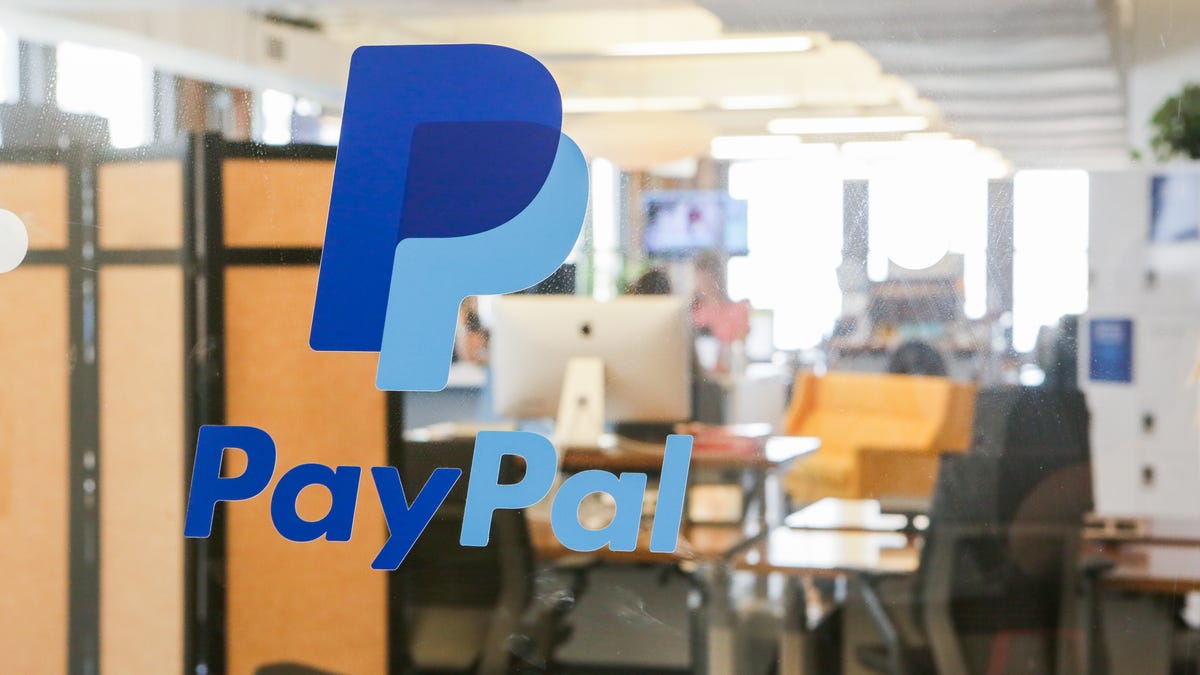Why PayPal sees itself as the future of payments
CEO Dan Schulman envisions a day when cashier lines die off as phones give people "all the power of a bank branch in the palm of their hand."

It didn't take long for the backlash to smack PayPal CEO Dan Schulman after his company took a stand for LGBT rights in North Carolina.
He was on the receiving end of threatening letters and public criticism for his decision in April to kill plans to create a 400-person operations center in Charlotte and walk away from $3 million in tax credits, just two weeks after the company unveiled the project. The reversal came after state legislators introduced a controversial bill that limited protections for lesbian, gay, bisexual and transgender people.
"It was important for us to make a statement -- most importantly internally for our employees -- that these aren't values that are up on a wall," Schulman said in an interview this month at his Manhattan office overlooking the Hudson River. "These are values that we live."
CEO Dan Schulman gained national attention, some of it critical, after he scrapped PayPal's expansion plans in North Carolina.
The episode offers an early sign of what the new PayPal might look like under Schulman, who became CEO after PayPal's spin-off from eBay last summer. He wants the San Jose, California-based payments company to become a more intimate part of customers' lives and a provider of financial services to some of the 2 billion to 3 billion people who are outside the banking system or are underserved by it. That broad mission of "democratizing financial services," he said, fits clearly with the North Carolina move to stand up for an underrepresented group.
Yet PayPal's road to becoming a bigger influence in finance is riddled with challenges, as Schulman now needs to keep up his company's growth while fighting Apple, Samsung, Google and a throng of startups pushing into digital payments.
For our meeting, Schulman, a 58-year-old born in Newark, New Jersey, wore his typical outfit of cowboy boots, jeans and a black long-sleeve shirt. The former American Express executive and Virgin Mobile USA CEO, who has a deep voice with a sometimes raspy edge, spoke at a calm, measured clip and came off as unexpectedly low-key for a guy who made $14.4 million last year. His office, at the top floor of a West Village midrise, features wood-slatted walls, large framed photos of Muhammad Ali and Babe Ruth, and a plaque commemorating PayPal's Nasdaq opening on July 20 last year.
Sitting at a conference table, Schulman said one of PayPal's big goals over the next two to three years will be to provide more financial advice and personalized services for the company's 184 million active customers. The company will add financial management tools and the ability to create subaccounts to help people budget their money. It is still deciding whether to charge for these extras.
PayPal may soon be able to draw from its mountains of data to offer new services. For instance, Schulman said, if a customer who regularly deposits his paycheck with PayPal stops that practice, the company's software could guess that the person may have lost his or her job and offer a personal loan with a low rate if PayPal already knows that the customer is fiscally responsible.
Still, customers will need to decide whether such tools are welcome or intrusive. PayPal also is working to steer clear of providing services that are too similar to those offered by banks because it regularly partners with financial institutions.
A future of seamless payments
Schulman's vision is to make PayPal more of a daily or weekly habit, instead of just a payment button on a retailer's website or a place folks visit every now and then to transfer money. The company wants to add ATM access and bill payments and to integrate services from its recent acquisitions, such as international remittances from Xoom and mobile money transfers from Venmo.
"There's some work for them to do to make sure people see them as more than just an online payments provider," said Eric Shea, a partner at consultant Kurt Salmon Digital who focuses on payments. "Can they stay relevant with mobile payments? That's a challenge for them."
Schulman (center) rings the bell at the Nasdaq on July 20 last year. Just a few days earlier, PayPal became independent from eBay after 13 years together.
About a decade from now, Schulman said, smartphones and the digitization of money will create huge changes in payments, giving people "all the power of a bank branch in the palm of their hand." Someday, he added, point-of-sale machines -- and the annoying lines that come with them -- will cease to exist, because payments will become a seamless part of shopping.
While PayPal remains the leader in digital payments, there are a lot of players trying to reinvent the world of money. Apple, for instance, said Monday that you will soon be able to make online purchases with Apple Pay.
But Schulman pointed out that 85 percent of transactions worldwide are done with cash, so for all these companies the room to grow is enormous. He put the size of that market at $100 trillion (yes, with a "t").
"This is a huge market waiting to be developed," he said, "and there won't be just one player."
Despite the negativity Schulman attracted over the North Carolina decision, he said, he also received a flood of support, and a long list of governors, senators and mayors reached out to PayPal to come to their states instead. PayPal will narrow its list of potential locations next month, he said.
"It was the responsible thing for us to do as a company," Schulman said. "I don't think it was an optional thing for us."
Corrected at 10:09 a.m. PT: The story previously said that CEO Dan Schulman would decide on the location of its operations center next month.

